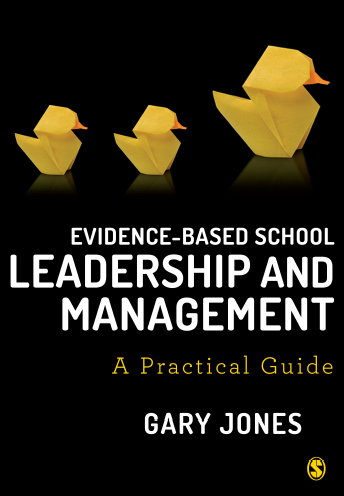The week before last saw the publication of the Education Endowment Foundation’s guidance on evidence-informed guidance. At the time, I was struck by the lack of any research evidence within the report, detailing how school governing bodies/trusts can bring about school improvement. Since then, with the aid of Terry Pearson @TPLTD, I have been able to locate a systematic literature review by Honingh, Ruite and van Thiel (2018) which looks at the relationship between school boards and educational quality.
Honingh et al having originally identified nearly 5000 articles on school boards and governing bodies in the USA, Netherlands, England and the Flemish Community of Belgium, eventually reduced to just 16 empirical articles from which they drew the following conclusions.
There is a lack of solid and robust empirical evidence on the relationship between school boards and governing bodies with educational quality. So it would seem that a theory of change which relates governing body activities with school improvement is not evidence-based. Governing bodies may have expectations placed upon them, which are just not supported by the evidence.
Within the 16 studies – there were differences between in the scope, scale and quality of the research, as well as country and regional differences. Claims and conclusions about the effectiveness of school boards/governing bodies are often based on personal experience, observations and opinions, as such the empirical base is mainly anecdotal
School boards and governing bodies are not homogenous. There are differences in how both a board is constituted – size, representation, role of school leader, primary and secondary – and the context in which the board is operating within, and the level of delegated authority. As such, this has major implications for practitioners when seeking to interpret and apply these findings.
The research on governing bodies has focussed on the outcomes of test results, rather than a broader definition of educational quality. As such, we know very little about the relationship between about the relationship between governing bodies and broader educational aims and objectives.
Some observations and implications
Just because since the 1980s governing bodies have become part and parcel of school life, that does not mean there is any evidence to support claims that they bring about school improvement. Indeed, this could probably be said about many activities within a school, for example, parents evenings (if you are communicating anything of importance at a parents’ evening this reflects a failure of day to day parent school communication)
Thought should be given to the development of a range of robust theories of change which links the work of the governing body with broader educational aims and objectives
Given pressures of senior leader and teacher work-load could a school be run without a governing body, with any functions deemed to be essential being undertaken by other individuals in the school, in a more time efficient and effective manner.
Social media and EduTwitter often gets a ‘bad-rap’. However, Twitter is full of people who are willing to make help, make suggestions and point out interesting research and is not just a playground for the ‘trads and the progs’ in their culture wars.
And finally
In coming weeks, future posts will be looking at how evidence-based practitioners can go about gaining feedback from stakeholders.
Reference
Marlies Honingh, Merel Ruiter & Sandra van Thiel (2018): Are school boards and educational quality related? Results of an international literature review, Educational Review, DOI: 10.1080/00131911.2018.1487387
